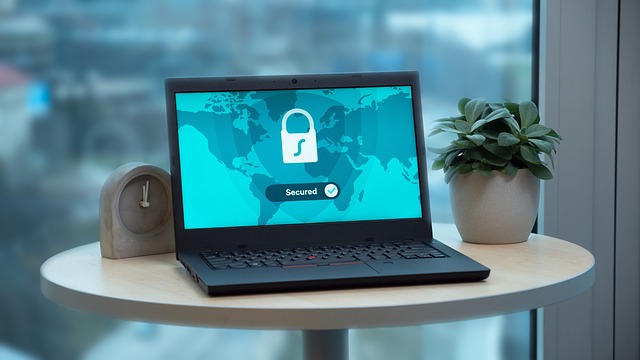
You’ve undoubtedly concluded that looking for flight options can be a genuine nuisance. But have you ever considered why the pricing range varies so much depending on how much you search? It’s true; costs might vary depending on your IP address, the websites you visit or products you’ve previously purchased, your zip code, and even the Wi-Fi network you’re connected to.
Locating flights at a lower cost is more challenging due to this practice, also known as dynamic pricing. Privacy solutions like a proxy server or a virtual private network (VPN), which allow you to change your location to discover lower prices, can, thankfully, prohibit a website from engaging in the travel data collection of its users. In this way, you can prevent travel sites from following your data and increasing their pricing based on the information they gather from your browser history.
Then, while in a different country, you may need to use the public internet connections available in airports, hotels, and cafés. These networks are typically dangerous because hackers can use them to steal your data and take control of your device. However, a proxy server or a virtual private network (VPN) helps keep your IP address safe by giving you access to another IP address that will let you circumvent geo-blocking, access all of your preferred websites, and stream your favorite Netflix TV show no matter where you are. This article will look at both privacy options, highlighting their respective strengths and weaknesses, to help you choose the right one on your next trip.
Why Do Tourists Need A Proxy Server Or A VPN For Travel?
Both of these privacy solutions can mask your personal IP location, enabling you to view information restricted to specific regions. Both services also make it appear that your online activity is coming from another place. Now, let’s review the benefits of utilizing a virtual private network (VPN) or proxy server before and during your trip.
Helps Mask Your Geo-Location As You Browse Prices Before Your Trip
Nearly every flight search and airline site records the location from which a user views the site. Your Internet Protocol (IP) address, which the travel websites track when users visit, can reveal your actual geolocation as a visitor from another country. Because you are making your request from a place not considered domestic, you may be charged a higher premium pricing than the standard fee. When you travel, whether you use a virtual private network (VPN) or a proxy server, you can switch between servers located in other countries to obtain the best deals and avoid a higher price or fee.
Keeps You Anonymous As You Browse Online During Your Trip
Watching or reading anything online in another location will be much more straightforward by using a VPN or proxy server when you arrive at your destination. This is because these type of tools allow you to bypass location-based content restrictions. This is because the websites you visit will never be able to see your actual IP address but rather an IP address linked to the country’s location with the geo-restrictions. In addition, a residential proxy will route your traffic through computers or phones connected to standard residential Internet service providers (ISPs). This renders residential proxies even more anonymous, further concealing that you are using a proxy and reducing the likelihood that your connection will be blocked. This allows you to still use your social network accounts and Amazon Prime through your browser, even in a different country, and your security will not be compromised.
Remember that virtual private networks (VPNs) and proxies have free and paid solutions. Therefore, users should exercise caution and read the privacy policy for the service. This is the case for free web proxies, which are not encrypted, meaning that the service provider can monitor and track any activity conducted over their platform. If your privacy abroad concerns you, you should look for virtual private networks (VPNs) and proxies that offer ‘logless’ or ‘zero knowledge’ alternatives. While utilizing the service to access the internet, the phrase ‘no log’ indicates that the providers have committed to not tracking or storing any of your activities.
The Two Reasons Why A VPN Is Better For Travelling Abroad
Encrypts All Online Activity
When going to other countries for leisure or work, you will need to use the public Wi-Fi network at airports, cafes, parks, and trains. You might even use a computer in a public place to print out your travel documents or visa information. Unfortunately, hackers can track your online behavior by creating fake hotspots or gaining access to public routers that are not properly secured. Once linked, they can steal your personal information, infect your device with malware, and intercept the internet data you send and receive.
A VPN will allow you to avoid public Wi-Fi, mask your IP address, and encrypt all your traffic while online. That implies that even if you use a rogue hotspot, the hacker behind it won’t be able to track your activity because they cannot access your device.
In addition, most proxies can only reroute the traffic of a single application or browser since they function at the application level. On the other hand, virtual private networks (VPNs) act at the operating system level, so they may reroute all of your traffic through a VPN server. In addition, virtual private networks (VPNs) can encrypt your browsing activity and data, while proxy servers do not. Alternatively, if your main concern is to hide your IP address from a specific website or app, choose a proxy server instead of a VPN, as this service is cheaper.
Permits You To Bypass Censorship
Perhaps, you have booked a trip to see the Great Wall of China. While you are there, you still want to be able to read the news or update your social media. However, you are suddenly confronted with a different kind of wall: the great firewall of China. This expression alludes to the country’s extensive internet restrictions, prohibiting access to Western media and websites. These websites include Facebook, Instagram, YouTube, Netflix, and Twitter.
It is not just China that censors the internet and controls what its citizens can access; Iran, Vietnam, Russia, Cuba, and many others do the same thing. You can browse the internet freely, change your IP address, and avoid being censored when you have a virtual private network (VPN) configured.
Your communication will only be routed through an intermediary server when you use a proxy, but you may still need more security when traveling. On the other hand, VPNs can provide this type of security in that they can encrypt all of your search traffic. But, if your main preference is to obscure your IP address from a specific website while you are searching for the most suitable accommodations for your vacation, using a proxy server is the more cost-effective option.





